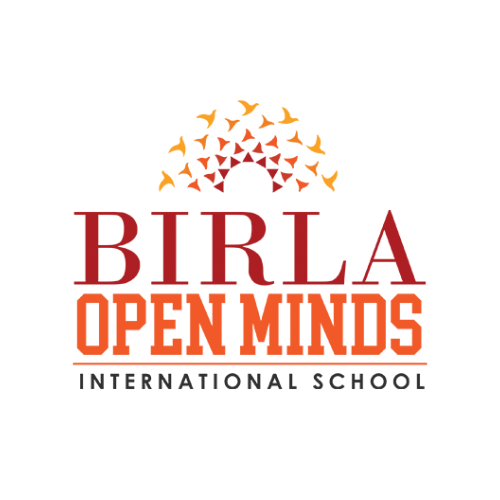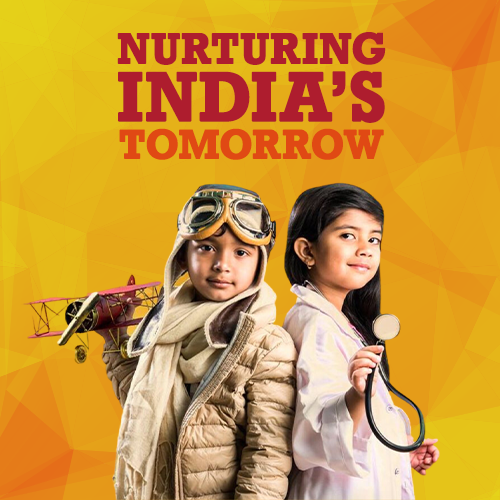PROGRAMME
Pre-School
Children are enrolled into different programmes according to their age :
Pre-Nursery
Nursery
Kindergarten 1
Kindergarten 2
The thematic curriculum for
preschool draws on neuroscientific research, on how the brain learns naturally
and which learning experiences are relevant at a particular age and stage in
life. Developmental Appropriateness, Brain Compatible Learning and the theory of
Multiple Intelligence guide the creatively designed curriculum for preschoolers
to ensure learning for all children.
PROGRAMME
Primary School
The Curriculum for grades 1-4 is thoughtfully planned to ensure that each child
at school enjoys these years in learning, discovery and creative engagement.
Research on how the brain learns best, developmental appropriateness, the theory
of Multiple Intelligences and the National Curricular Framework, 2005 have
guided the planned curriculum.
Learning Environment is an affirmative and
enabling one. Bright airy learning spaces, creative learning centres,
comfortable reading nooks, integrated laboratories, ICT laboratories, exciting
and interactive display boards, break out and break free zones and so on create
an environment that catalyses learning. Assessment is continuous and
comprehensive.
An ongoing process, it guides the learner in their pursuit of
learning; also, a theme end summative assessment ensures timely feedback on
degree of achievement of individuals as well as grade-level outcomes. These, in
turn, guide teachers and parents to provide challenge or support, as per need,
in a 'timely' and 'effective' manner.
The progress of each child is shared
through detailed report books along with a portfolio of documented work making
learning visible to all. All these thoughtful processes ensure the fulfillment
of our ultimate goal of teaching in a way that all students learn.
PROGRAMME
Middle School
At Birla Open Minds International School, we emphasise on providing an inspiring
school environment that enables a shift from rote methods to a course beyond
textbooks.
The curriculum aims to provide experiences and opportunities for
students to think differently, analyse and evaluate independently and foster a
place where we can soften subject boundaries and connect knowledge to life
outside the school.
The Middle School Curriculum at Birla Open Minds though
unique, merges seamlessly with the ICSE/CBSE/IB/IGCSE boards. Till class 7,
Birla Open Minds offers a unique Birla curriculum and Class 8 onwards the
curriculum is designed keeping in mind the culminating Board examination.
The
co-scholastic areas of the middle school gives the students the opportunity to
express themselves - such as arts, drama, music, various individual and team
sports and community service projects.
Life Skills and Physical Education and
Outbound Programmes are also an integral part of the middle and high school
curriculum.
PROGRAMME
High School
The Primary and Middle school approach of using experiential and student centric
methodologies continues in the Birla Open Minds High School years. The
transition is smooth and allows the students to prepare for the school leaving
certificate examinations.
At the High School stage, the Birla Open Minds
International Schools offer a variety of options to the students. The students
can opt for the Indian boards such as the CBSE or the CISCE or can opt for the
International Curriculum.
Students have the choice of opting for the ICSE/ CBSE
or IGCSE curriculum in Grade 8.
In Grade 11, once again students have the choice
of opting for the ISC/CBSE curriculum or the Cambridge A/AS levels.
All Open
Minds school will be undertaking a feasibility study to consider applying for
authorisation to offer the IBDP programme.
For more information on these examining board details, visit the following websites:
Council for the Indian School Certificate Examinations (CISCE): www.cisce.org
Central Board of Secondary Education(CBSE): www.cbse.nic.in
Cambridge International Examinations (CIE): www.cie.org.uk
For further information regarding the International Baccalaureate, kindly refer to: www.ibo.org


